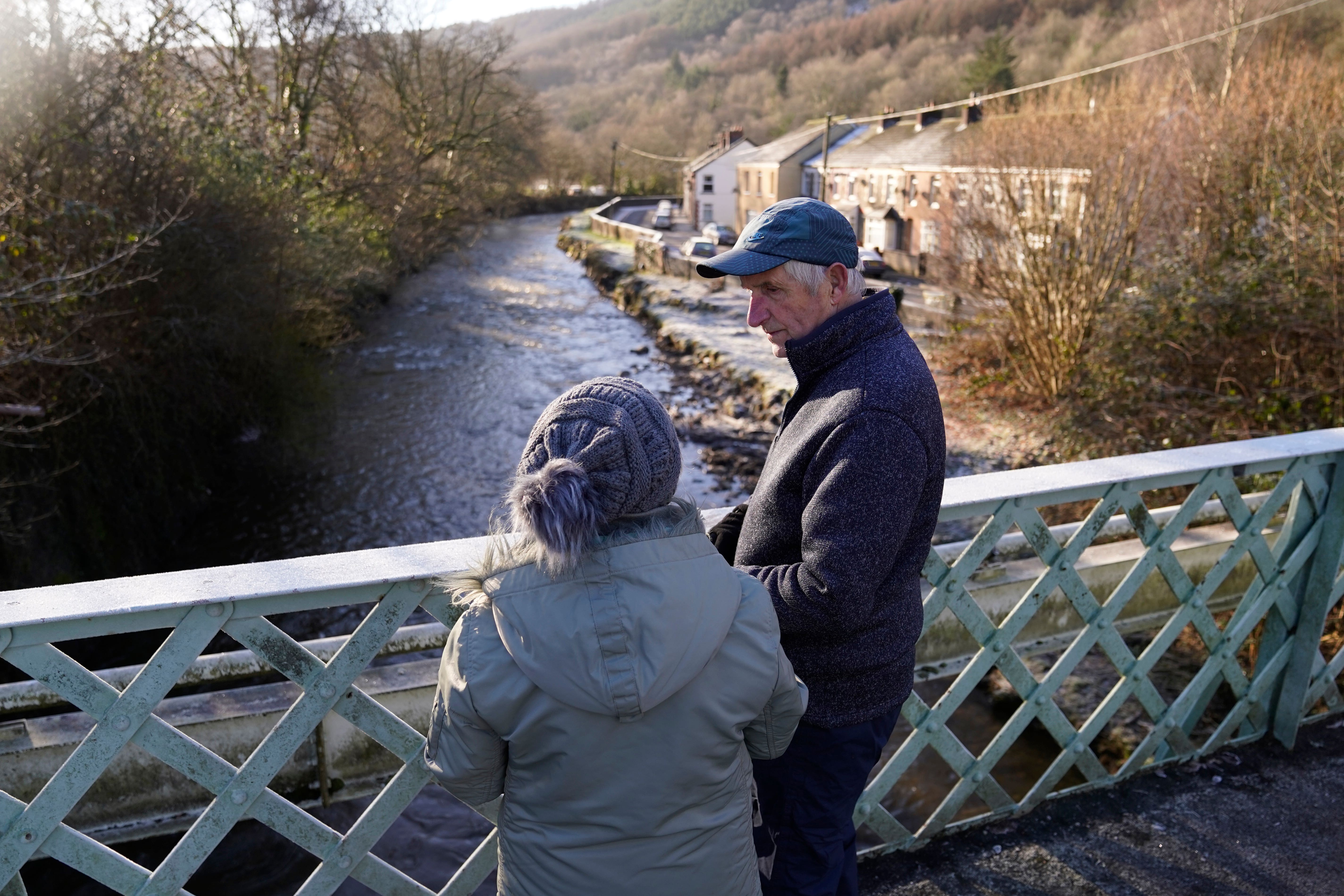MP calls for ‘full investigation’ of suspected chemical waste dump
A landfill site in a South Wales village may be leaking toxic PCBs past homes and into a nearby river.

Your support helps us to tell the story
From reproductive rights to climate change to Big Tech, The Independent is on the ground when the story is developing. Whether it's investigating the financials of Elon Musk's pro-Trump PAC or producing our latest documentary, 'The A Word', which shines a light on the American women fighting for reproductive rights, we know how important it is to parse out the facts from the messaging.
At such a critical moment in US history, we need reporters on the ground. Your donation allows us to keep sending journalists to speak to both sides of the story.
The Independent is trusted by Americans across the entire political spectrum. And unlike many other quality news outlets, we choose not to lock Americans out of our reporting and analysis with paywalls. We believe quality journalism should be available to everyone, paid for by those who can afford it.
Your support makes all the difference.An MP has accused environmental regulators of failing to investigate a potential toxic chemical leak from a landfill site in South Wales.
Ty Llwyd Quarry in Ynysddu, a small village just north of Cardiff, is believed to contain highly carcinogenic PCBs from toxic waste dumped there from a factory in Newport in the 1960s and 1970s.
Residents fear that the chemicals are pouring through a forest where children play, past their homes and into the Sirhowy river during periods of heavy rainfall.
Studies on marine wildlife around the UK have found that PCBs are having a devastating impact on orcas, bottlenose dolphins and other mammals.
Chris Evans, Labour MP for Islwyn, called for a “full investigation” to be carried out at Ty Llwyd and said he was “extremely disappointed” so far in the response from Natural Resources Wales (NRW).
NRW said it is taking reports seriously and will take enforcement action if necessary.
Mr Evans told the PA news agency: “Is it hazardous? We don’t know because we’ve not gone up there. If this is getting into the Celtic Sea as people suspect then we need to know.
“There should be a full investigation up there. Natural Resources Wales have to take this seriously.
“I’ve been extremely disappointed with them over a number of issues over the years and this is just another issue again which I don’t think they’re addressing adequately at the moment.
“They seem to be very slow to respond to complaints and this is not an isolated incident. It seems to be happening over and over again with them.”
Ynysddu resident Olwen Williams, whose brother’s farm next to where she lives was bought out under compulsory purchase because of contamination, said children have played in the woods below Ty Llwyd where a foul-smelling brown foamy liquid was flowing, which is thought to contain PCBs.
PCBs were used in electrical equipment and produced by industrial chemical manufacturer Monsanto, which previously owned the Newport plant, up until they were banned by the UK Government in 1981.
Caerphilly County Borough Council (CCBC), owners of the quarry and the land below it, have since put up tape and signs warning people to stay away.
A spokesperson from NRW said: “For historical sites that are not regulated by NRW, there is a statutory duty on local authorities, as principle regulators, to inspect their areas in order to identify potential contaminated land.
“As soon as we received reports of a potential pollution incident in the Ynysddu area in Caerphilly, we attended the site to carry out an investigation and take samples.
“These are being analysed in our laboratory in Swansea and we are continuing to liaise closely with Caerphilly Council as part of the ongoing investigation process. Any appropriate enforcement action will be carried out as necessary.”
Plaid Cymru’s Peredur Owen Griffiths, Senedd member for South Wales East, claimed the council does not deal with environmental issues well and said it should be more transparent with its residents on the matter.
He said: “That Caerphilly County Council does not have a good track record in dealing with environmental issues is a narrative that has developed over time.
“And unfortunately they don’t now seem to be getting a handle on these toxic sites.
“Whenever questions are raised about it, they seem quite defensive. Whenever someone is asked about it they say it’s not their area.”
Mr Griffiths also called on Julie James, the minister in charge of environmental issues, and the NRW to take control of the situation.
He said: “It’s now about making sure the council, the Senedd and the NRW are aligned around who’s responsible for what, and then resources can be made available to make sure that our communities aren’t being affected by toxic chemicals potentially getting into the waterways and the streets where kids play.”
Despite there being dozens of suspected chemical dump sites across the region, only Brofiscin Quarry in Rhondda Cynon Taf has been classified as such and remediated after it was found to be contaminating local water supplies with PCBs, dioxins and Agent Orange derivatives.
Monsanto, BP and Veolia agreed to pay for the remediation but did not accept legal liability for the pollution.
A spokesperson from CCBC said of Ty Llwyd: “Monitoring undertaken concluded that there was no evidence of a widespread impact on surface water quality and it was determined at that time, the site was unlikely to meet the definition of contaminated land.
“We are still of this opinion but are undertaking further monitoring to confirm this.”
A Welsh Government spokesperson added: “We have discussed the concerns with Caerphilly Council and Natural Resources Wales. As the primary regulator, the council is reviewing the closed landfill site.”